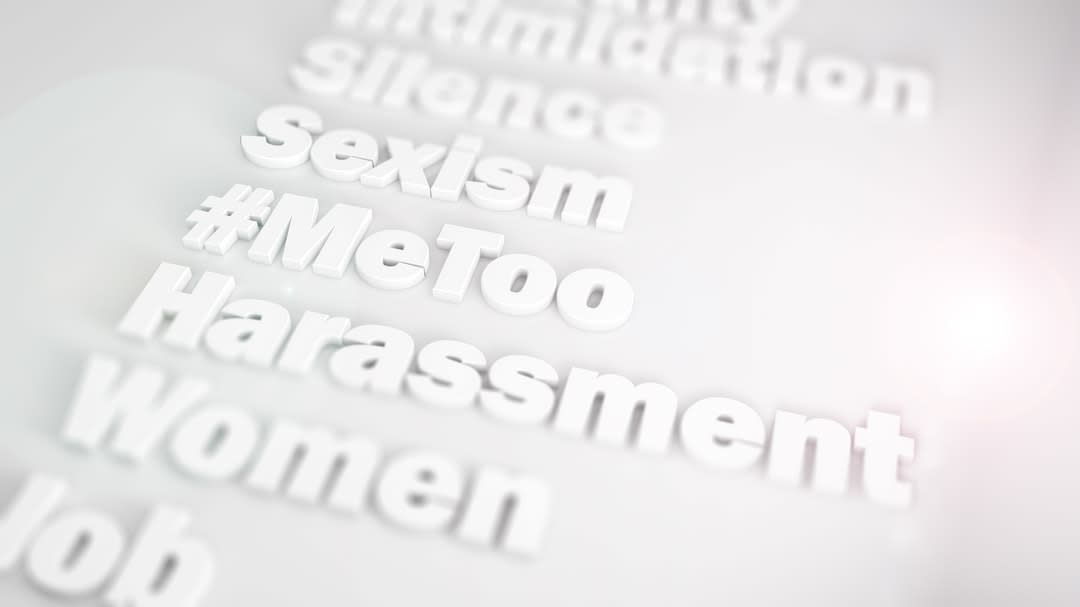This week we mark International Women's Day. The theme this year is 'Women in Leadership: Achieving an equal future in a COVID-19 world'. Many words in the past few weeks have been dedicated to the question of leadership, the privilege of power, and the active effort to deny or discredit women as leaders and as truth tellers.
-
Kate Fitz-Gibbon
Director, Gender and Family Violence Prevention Centre, Senior Lecturer in Criminology, School of Social Sciences
-
Silke Meyer
Deputy Director, Gender and Family Violence Prevention Centre, Associate Professor (Research), Criminology
-
Marie Segrave
Associate Professor of Criminology
For this week, we want to shine a light on the vacuum of accountable leadership in addressing violence against women.

In a week when politicians are required to celebrate women, the place for women in Australia has never been under greater threat. Arguably, never before have women victim-survivors across our country been made to feel so unsupported and disbelieved by those in power.
Indeed, the past week has been a stark reminder for all Australian women of how protected male privilege is, and how little support is afforded to survivors of sexual violence.
The lack of federal leadership on violence against women
For those who dare to speak out about male violence and abuses of power, our federal leadership has relied on the appeal to uphold the rule of law. It's both possible and acceptable to pursue an inquiry outside of a criminal investigation. This is well-accepted by legal and non-legal experts.
Yet despite denying responsibility for other areas of action where he bears no direct expertise ("I don't hold a hose, mate") the Prime Minister asserts that he does know enough to determine that any investigation other than a criminal investigation is a fundamental threat to our democracy.
He's asserted his support and belief in the Attorney-General's denial of rape allegations, while also acknowledging he has not afforded the respect to the complainant who wrote of her experience to read her account.
The PM's position, as a man and as the leader of the nation, is important. It has set the tone.
The PM's position is also critical because of his style of leadership over his term, including during the previous election period. While the Hawke era saw the establishment of the Office of the Status of Women and the first minister appointed to this portfolio, bringing about rapid and important change, today we see this office largely silent at this critical juncture in accounting for women's experiences of sexual violence.
When Minister for Foreign Affairs Marise Payne spoke on International Women's Day to the ABC, she repeated the position of the PM - that all inquiry ceases with the termination of the criminal investigation, and that this is a question that goes to the foundation of our democracy.
As Australia launches a national campaign encouraging men and women to "unmute" themselves and speak up against violence against women (VAW), we're seeing repeated efforts to silence those calling for something more substantial to demonstrate that it's unacceptable, no matter who perpetrates it and what job they hold.
On average, one woman a week is killed by men's violence in Australia. This is an often-repeated statistic that represents the tip of the iceberg of violence against women in our country.
Underpinning the high rate of violence against women is gender inequality across the Australian community. The 2020 Report of the World Economic Forum Global Gender Gap Index reports that Australia is 44th in the world. This is a decline from 2006, when we were ranked at 15th.
As a country, we're slipping backwards, and the events of the past fortnight sharply illustrate how this is possible. The Kate Jenkins-led inquiry into the workplace culture in Australian parliament will be important for questioning parliamentary staffing processes and shining a light on the necessary cultural changes, but the issues run much deeper and are more intractable.
The vacuum of government leadership against the rise of community voices
While we witness this vacuum of government leadership, we have, over the past week, heard from leaders across the community who have raised their concerns and demanded change while the federal political leaders remained silent.
Courageous victim-survivor advocates, journalists and community leaders have made their voices heard. Women from Indigenous and migrant and refugee backgrounds have spoken about the structural and systemic impacts of violence against women compounded by bias based on race and ethnicity.
But those who have been charged with the power to drive change at the national level are not yet responding to the community's call for action.
At this moment we see, then, both hope and despair. While VAW impacts women across every political divide, it's not a divisive issue for determining leadership outcomes. But we are seeing some polls bounce, reflecting disquiet and dissatisfaction among women with the state of current leadership.
The need for diverse and inclusive leadership
While we continue to lead with evidence, and work collectively with agencies working to end VAW, and while we maintain our stance on the importance of affording rights and acknowledgement to victim-survivors, we also look to the women around us, and those coming after us, to lead. The need for diversity of leadership, not just across gender but across life experience and cultural and linguistic diversity, has never been clearer than in this moment.
Grace Tame, when asked at the National Press Club address if she would consider a political career, gave a resounding "Nooooo". Politics isn't for everyone, but it should be for all. Changing the rates and the response to VAW must occur at every level, and this includes ensuring that those who make the decision about national priorities understand that leadership on VAW will benefit everyone.






